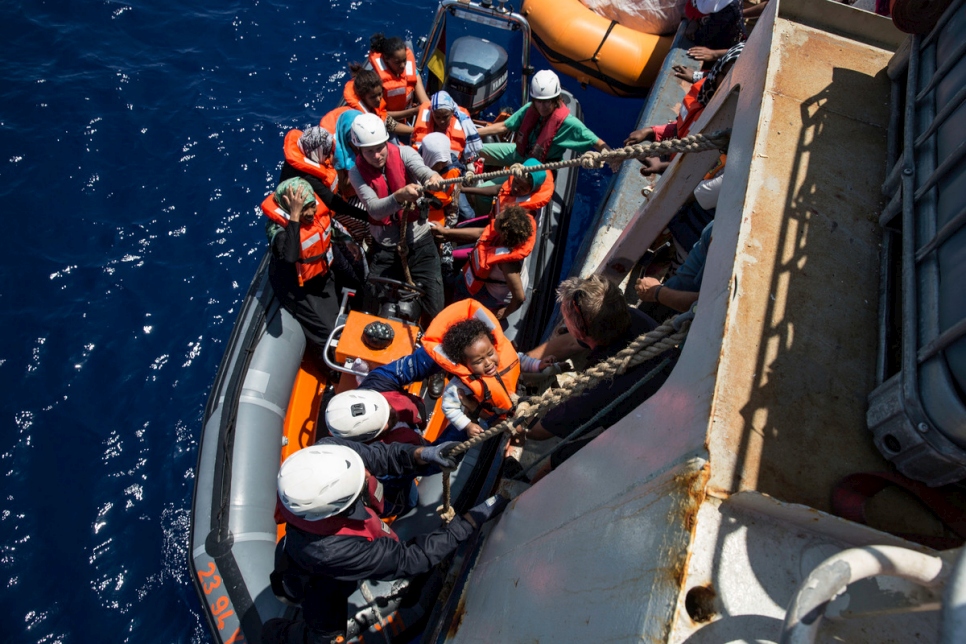UNHCR saddened at heavy loss of life as boat sinks off Tunisia
This is a summary of what was said by UNHCR spokesperson William Spindler – to whom quoted text may be attributed – at today's press briefing at the Palais des Nations in Geneva.

Crew from a Sea Watch search and rescue vessel rescue survivors from a boat that foundered trying to cross the Mediterranean to Europe in 2016. © UNHCR/Hereward Holland
At least 52 people died after a boat carrying around 180 refugees and migrants sank off the coast of Tunisia on Saturday. UNHCR, the UN Refugee Agency, is deeply saddened at this latest tragedy in the Mediterranean Sea and is concerned about the high number of people dying on the Central Mediterranean route, with over 700 dead or missing so far in 2018.
According to Tunisian officials, the boat departed from Melita in the Kerkennah Islands on Saturday night, heading in the direction of the Italian coast. Two hours into the journey, the overcrowded boat broke down and began to sink. According to official sources, the vessel was 16 nautical miles off the coast of Sfax when it sent a distress signal. Local fishermen initiated the rescue and alerted the Tunisian Navy and the coast guard. The coast guard rescued 68 people and found 52 dead but had to halt their search and rescue operation on Saturday afternoon due to bad weather. Some 60 people are missing at sea and presumed dead. According to reports, two smugglers were arrested in connection with the incident.
UNHCR is undertaking profiling and counselling of the survivors and assessing their protection needs. This recent incident is part of broader mixed migration movement involving both refugees and migrants in the coastal area around the city of Sfax, 270 kilometres southeast of the capital, Tunis.
There are 851 refugees and 109 asylum-seekers registered with UNHCR in Tunisia. UNHCR endeavours to achieve durable solutions for refugees and other alternative legal pathways, such as private sponsorship, family reunification and naturalization. In 2017, UNHCR supported the voluntary repatriation of five refugees, the resettlement of seven families (21 individuals) and the naturalization of seven cases. In addition, five individuals left under a private sponsorship scheme.
For more information on this topic, please contact:
- In Amman, Rula Amin, [email protected], +962 (0)790 04 58 49
- In Tripoli, Paula Barrachina Esteban, [email protected], + 216 20 697 641
- In Geneva, William Spindler [email protected], +41 79 217 3011
